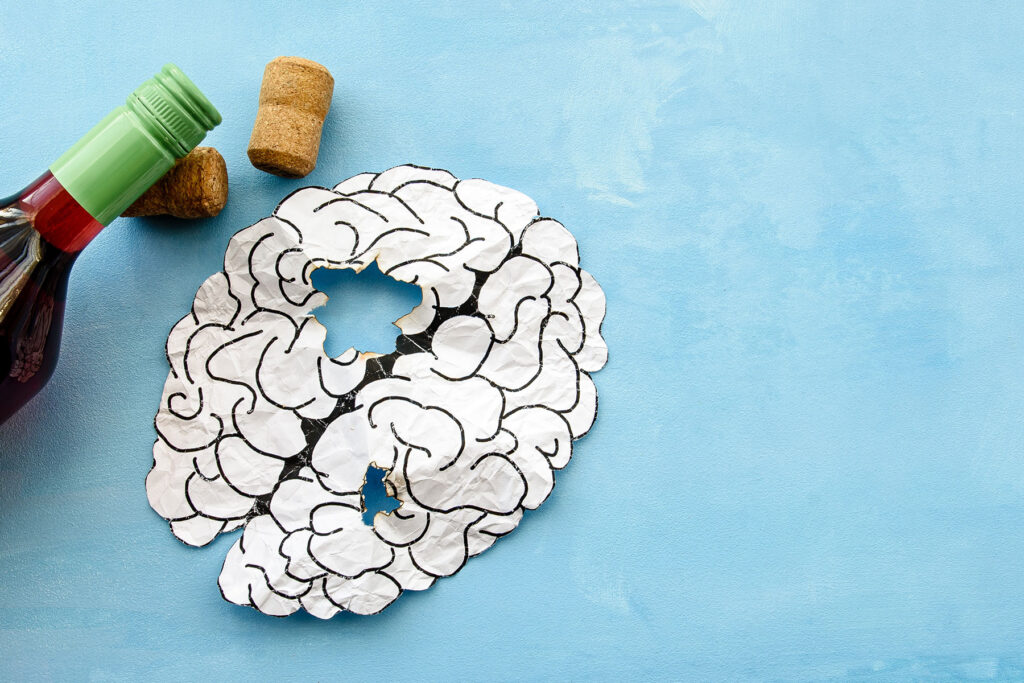Alcohol addiction treatment programs are designed to help individuals recover from the physical, mental, and emotional damage caused by long-term alcohol abuse. One of the most devastating effects of alcoholism is brain damage, which can result in significant cognitive, emotional, and behavioral impairments. Many people wonder: “Can you reverse brain damage from alcohol use?” Exploring this question in detail and finding insights into the latest research can lead individuals to treatment options available for alcohol addiction.
At The Ranch, we recognize that addiction is a disease that requires specialized care and attention. We provide a safe and supportive environment that is free from judgment and stigma, and our staff is dedicated to helping individuals overcome their dependence on alcohol and rebuild their lives. If you or someone you know is struggling with the adverse effects of alcohol abuse, don’t hesitate to reach out to us today at 1.844.876.7680. Our unique programs and services may be just what you need to take the first steps toward recovery.
What Causes Brain Damage from Alcohol?
Alcohol abuse can cause damage to the brain in several ways. Chronic alcohol consumption can result in the death of brain cells, especially in the hippocampus, which is vital for memory. Alcohol also interferes with neurotransmitters, which are responsible for transmitting signals between different parts of the brain. This can lead to impaired cognitive function, mood disorders, and behavioral changes. Additionally, alcohol can disrupt the blood-brain barrier, which is the protective shield that prevents harmful substances from entering the brain. This can cause inflammation and damage to the brain tissue.
Can You Reverse Brain Damage from Alcohol?
The answer to this question is not simple. The extent of brain damage caused by alcohol depends on various factors, including the amount and duration of alcohol abuse, individual susceptibility, age, gender, and overall health. Some studies suggest that brain damage from alcohol may be reversible, at least partially, with abstinence and alcohol addiction treatment programs. Researchers have found that the brain can recover and repair itself to some extent, particularly in cognitive function and memory areas. However, this process may take years and may not be complete.
Treatment Options for Brain Damage from Alcohol
The first and most critical step in reversing brain damage from alcohol is to get sober and abstain from alcohol consumption. This can be achieved through inpatient or outpatient alcohol addiction treatment programs that provide comprehensive care and support. These programs typically include detox, inpatient rehab, outpatient therapy, and aftercare services. In addition to traditional therapies, such as individual and group counseling, alcohol addiction treatment programs may offer innovative treatment modalities, such as cognitive remediation, neurofeedback, and brain stimulation therapy, aimed at improving cognitive function and restoring brain function.
In addition to alcohol addiction treatment programs, individuals with brain damage from alcohol may benefit from specialized treatment for co-occurring mental health disorders, such as depression, anxiety, bipolar disorder, or PTSD. These disorders can exacerbate the symptoms of brain damage and make recovery more challenging. Treatment options may include medication management, individual and group therapy, and holistic therapies such as mindfulness and yoga.
Call The Ranch to Start Alcohol Addiction Treatment Today
Brain damage from alcohol is a severe and often irreversible consequence of alcohol abuse. However, it is possible to improve cognitive function and restore brain health to some extent with abstinence and alcohol addiction treatment programs. If you or someone you know is struggling with alcohol addiction and needs help, contact The Ranch today. Our team of experienced professionals can provide customized and evidence-based care to help you overcome addiction, recover from brain damage, and regain control of your life.
Don’t wait. Take the first step toward recovery today by calling 1.844.876.7680 or completing our online form.


